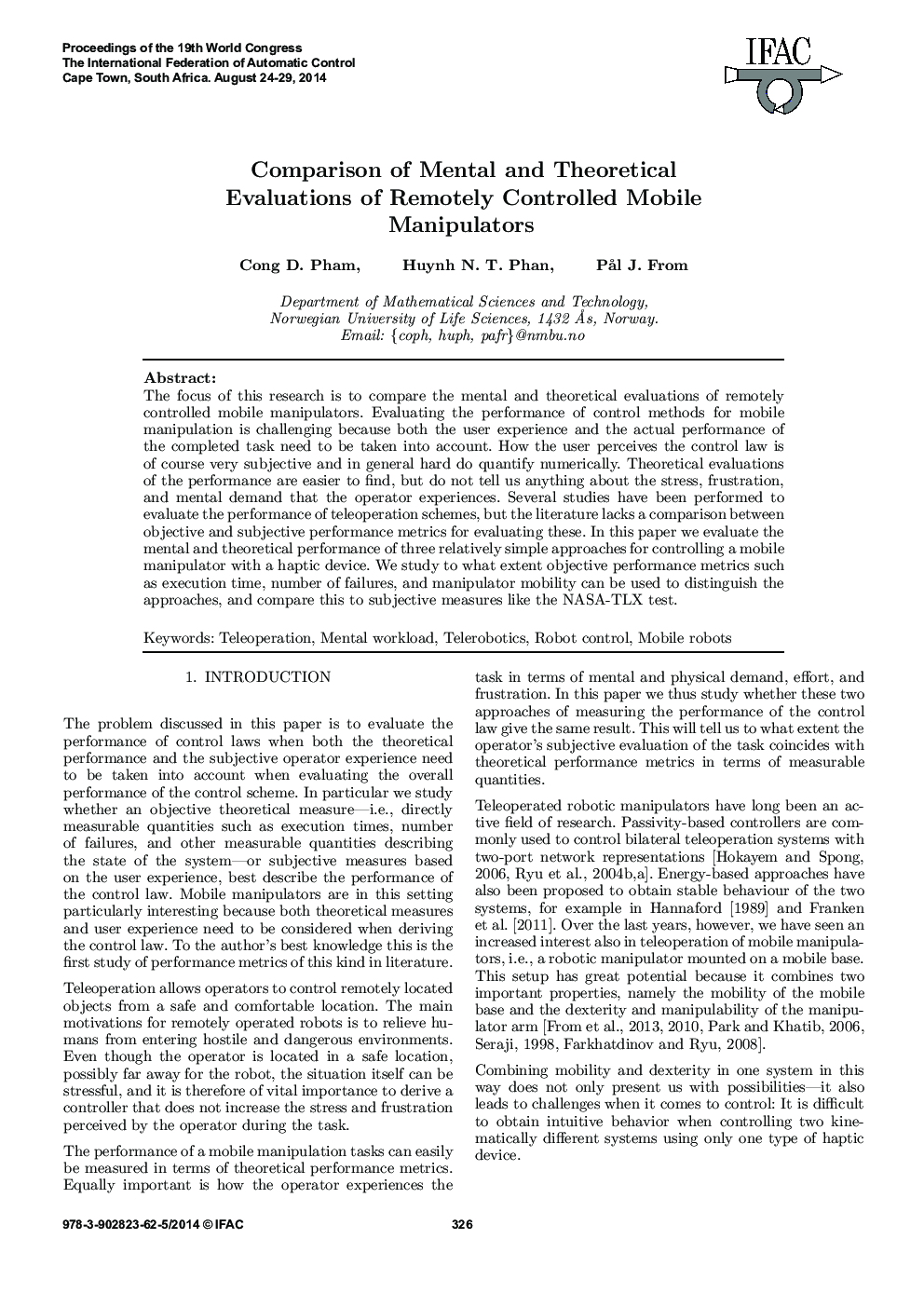| Article ID | Journal | Published Year | Pages | File Type |
|---|---|---|---|---|
| 712173 | IFAC Proceedings Volumes | 2014 | 6 Pages |
The focus of this research is to compare the mental and theoretical evaluations of remotely controlled mobile manipulators. Evaluating the performance of control methods for mobile manipulation is challenging because both the user experience and the actual performance of the completed task need to be taken into account. How the user perceives the control law is of course very subjective and in general hard do quantify numerically. Theoretical evaluations of the performance are easier to find, but do not tell us anything about the stress, frustration, and mental demand that the operator experiences. Several studies have been performed to evaluate the performance of teleoperation schemes, but the literature lacks a comparison between objective and subjective performance metrics for evaluating these. In this paper we evaluate the mental and theoretical performance of three relatively simple approaches for controlling a mobile manipulator with a haptic device. We study to what extent objective performance metrics such as execution time, number of failures, and manipulator mobility can be used to distinguish the approaches, and compare this to subjective measures like the NASA-TLX test.
